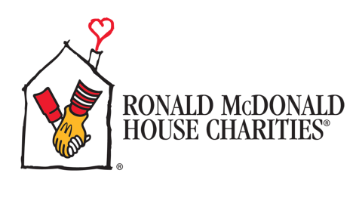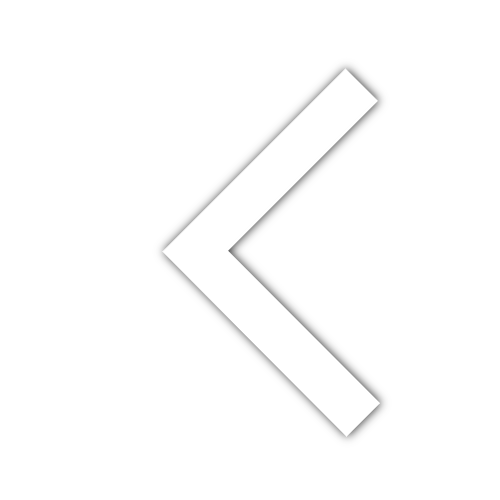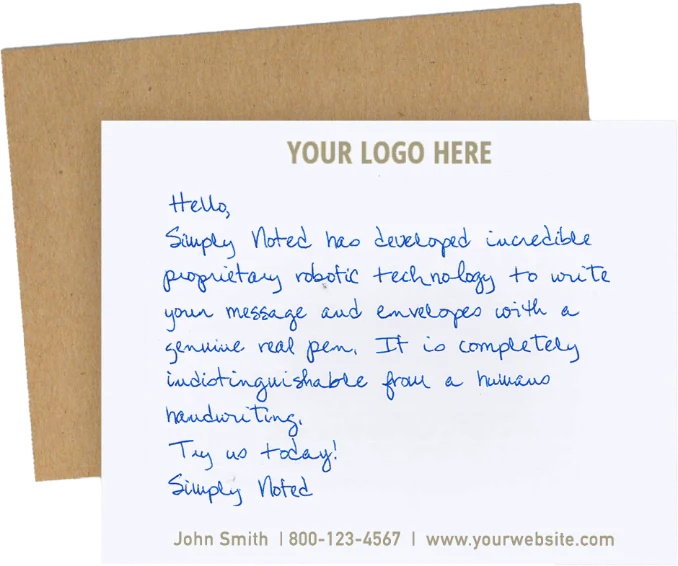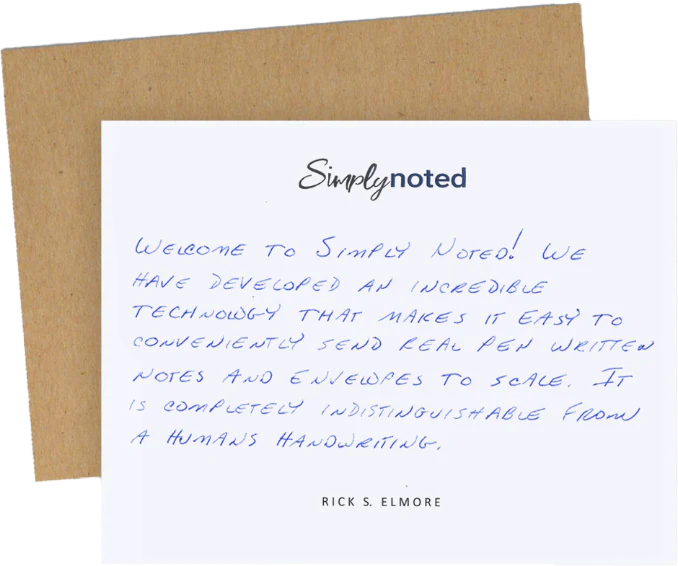Handwritten Thank You Notes for Doctors Offices

Doctors form deep and abiding connections with their patients. This shouldn’t be surprising given the highly personal nature of the doctor/patient relationship. Doctors become trusted advisors, dispensing guidance and counsel on demand. Patients often feel a debt of gratitude for the healing role their physician plays in what is often a challenging period in their life.
This gratitude shouldn’t be one-way. There are several reasons why doctors might want to express thanks to their patients as well. In these instances, handwritten thank you notes are an indispensable tool for doctors offices. They help draw your patients closer to you and provide another means to build trust in your relationship.
When might your practice send thank you notes? Let’s take a closer look.
SEE ALSO: 8 Ways to Say Thank You — Automatically!
WHEN MIGHT DOCTORS OFFICES SEND THANK YOU NOTES?
Physicians have a few opportunities to use handwritten thank you notes to retain patients and build their businesses.
New Patient Referrals
Patient referrals are the most common reasons doctors might send thank you notes. Word-of-mouth is an important component of a practice’s promotional efforts. When patients pass on your name, it comes with a considerable amount of goodwill, often translating into new patients. Thanking those that spread the word provides positive feedback and helps encourage further referrals in the future. It’s also nice to thank other physicians when they refer patients to you.
Annual Patient Anniversaries
Anniversary thank you notes are a great excuse to reach out to patients and bring yourself back to the top of their minds. You’ll find that this little nudge is often enough to spur patients back into your office. They may have been suffering from something in silence, and receiving your card reminds them to schedule an appointment.
You don’t really need an occasion to send thanks, but you certainly shouldn’t miss the opportunity when a specific occasion presents itself.
SEE ALSO: What to Say in a Business Thank You Card

After a Successful Treatment
When a patient comes to you, ill and suffering, and leaves happy and healthy, they’re sure to feel gratitude for your actions. You can encourage your patients to share this with you by sending a thank you of your own.
Send a card thanking your patient for choosing you, and for giving you the opportunity to guide them along their healing path. In theory, you love what you do. It’s why you’re a doctor. Your patients provide the means to ply your trade, so you owe them as much gratitude as they owe you.
AUTOMATE YOUR THANK YOUS SO YOU NEVER FORGET
There’s never a dull moment for a bustling doctors office. Between patient concerns, appointments, insurance paperwork, and billing, you and your office staff have your hands full. Full days mean that certain priorities get left behind.
Don’t let your handwritten thank yous suffer. Simply Noted can automate all of your handwritten cards so that you can use the power of the handwritten word without having to write it yourself. Imagine — a room teeming with handwriting machines, all of them whirling ballpoint pens around attractive cards, creating realistic handwritten words, sentences, and paragraphs. In the time it might take you to write out a single card, we can produce hundreds, each customized to its recipient, each utterly flawless in its recreation of the written word.
You can integrate Simply Noted with many of the software packages you already use. After a successful course of treatment, ping us and we’ll craft a beautifully penned handwritten card and drop it in the mail. Set up annual thank you cards and we’ll send out your message on time, every time. We’re the best way to do handwritten notes, and we’re affordable to boot!

OTHER WAYS TO SAY THANK YOU TO YOUR PATIENTS
You can express gratitude with your actions as well as your words. When we’re grateful for someone, we treat them with respect and work to make their lives better. This plays directly into a physician’s skill set. You spend your professional life helping people. You simply need to channel your better nature into showing your patients what they mean to your practice.
SEE ALSO: How to Thank Essential Workers
Don’t Rush Your Patients
We get it. Managing a doctors office can be challenging. You have to deal with late arrivals, argumentative patients, and complicated payment systems. There’s the constant pressure to speed patients through your waiting room and into their exam.
Don’t succumb to this temptation. A rushed diagnosis is more likely to get something wrong. Make sure you give each patient as much time as they need to explain what’s wrong. Listen carefully and explore every avenue available, regardless of the time investment. The deeper you dig, the more you’ll uncover.
Be Patient and Explain Everything
You can thank your patients by being the best doctor you can be. They’re relying on you, sometimes with their lives. You can repay that trust by listening patiently and attentively, without preconceptions, allowing your patients to be positive advocates for themselves.
When they don’t understand something you’ve said, explain it. If they’re still not certain, explain it again. Work to craft your words in a way your patient can comprehend. If they don’t fully appreciate what’s going on with them, they’ll have a challenging time caring for themselves properly.

Tell the Unvarnished Truth, Even When It’s Difficult
Bad news can be difficult to deliver, but it’s necessary. Out of respect to your patients (and your profession), you should tell things straight, making certain your patient understands what you’re telling them.
It can be tempting to sugarcoat bad news. Short term, it makes for an easier conversation. But long term, your patient won’t have an accurate understanding of the health challenges facing them. They’ll have an overly rosy picture of what might be a more serious condition. As a result, they may not take their treatment as seriously as they should.
Your patients have put a lot of trust in you. You can thank them for that by being entirely honest about all things at all times. However you do it, say “thanks” to your patients often and honestly. They’ll reward you with a waiting room full of new and existing patients.























